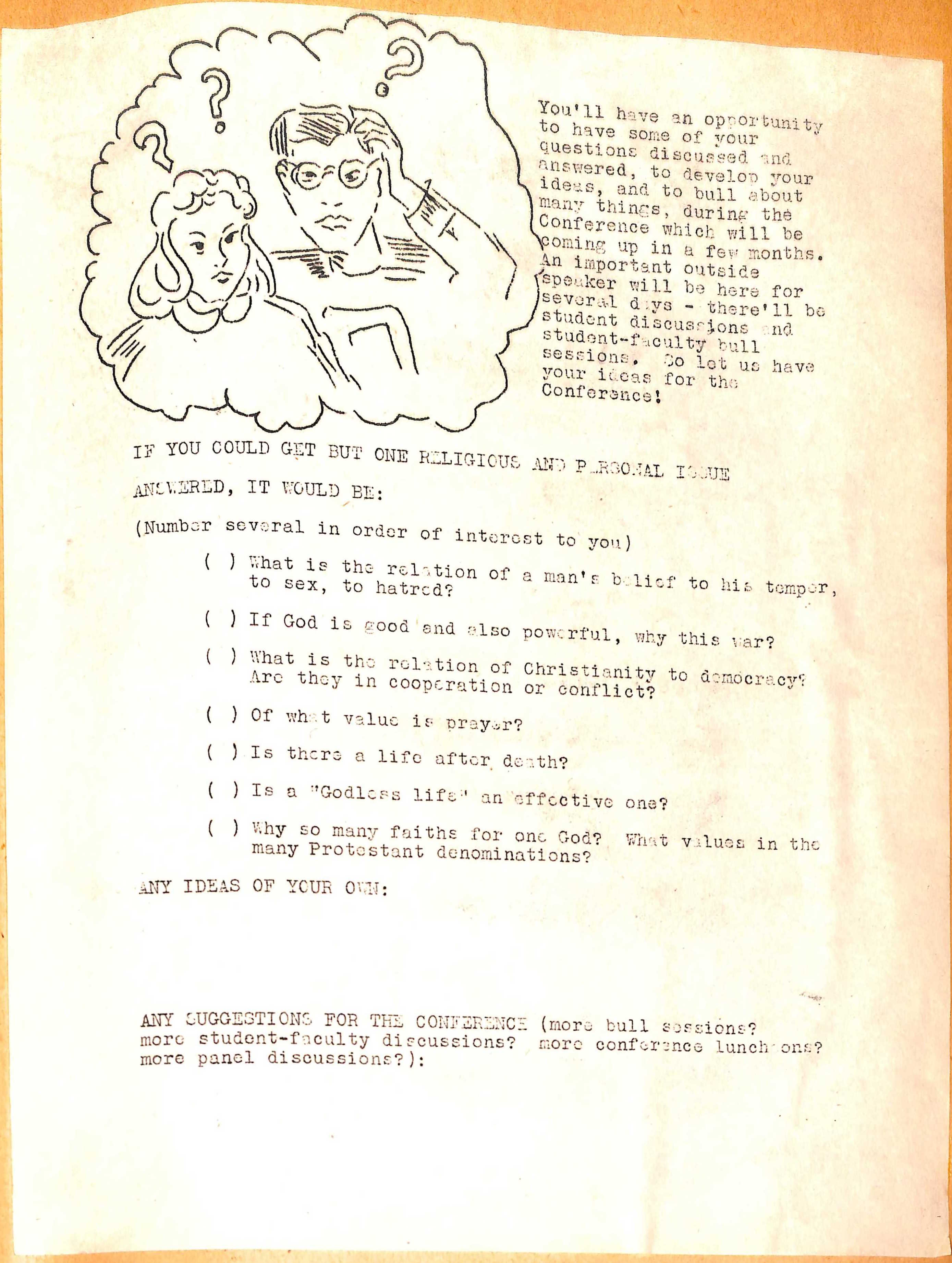|
|
Transcription: You’ll have an opportunity to have some of your questions discussed and answered, to develop your ideas, and to bull about many things, during the Conference which will be coming up in a few months. An important outside speaker will be here for several days – there’ll be student discussions and student-faculty bull sessions. So let us have your ideas for the Conference!
IF YOU COULD GET BUT ONE RELIGIOUS AND PERSONAL ISSUE ANSWERED, IT WOULD BE: (Number several in order of interest to you) ( ) What is the relation of a man’s belief to his temper, to sex, to hatred? ( ) If God is good and also powerful, why this war? ( ) What is the relation of Christianity to democracy? Are they in cooperation or conflict? ( ) Of what value is prayer? ( ) Is there a life after death? ( ) Is a “Godless life” an effective one? ( ) Why so many faiths for one God? What values in the many Protestant denominations?
ANY IDEAS OF YOUR OWN:
ANY SUGGESTIONS FOR THE CONFERENCE (more bull-sessions? More student-faculty discussions? More conferences luncheons? More panel discussions?): |
